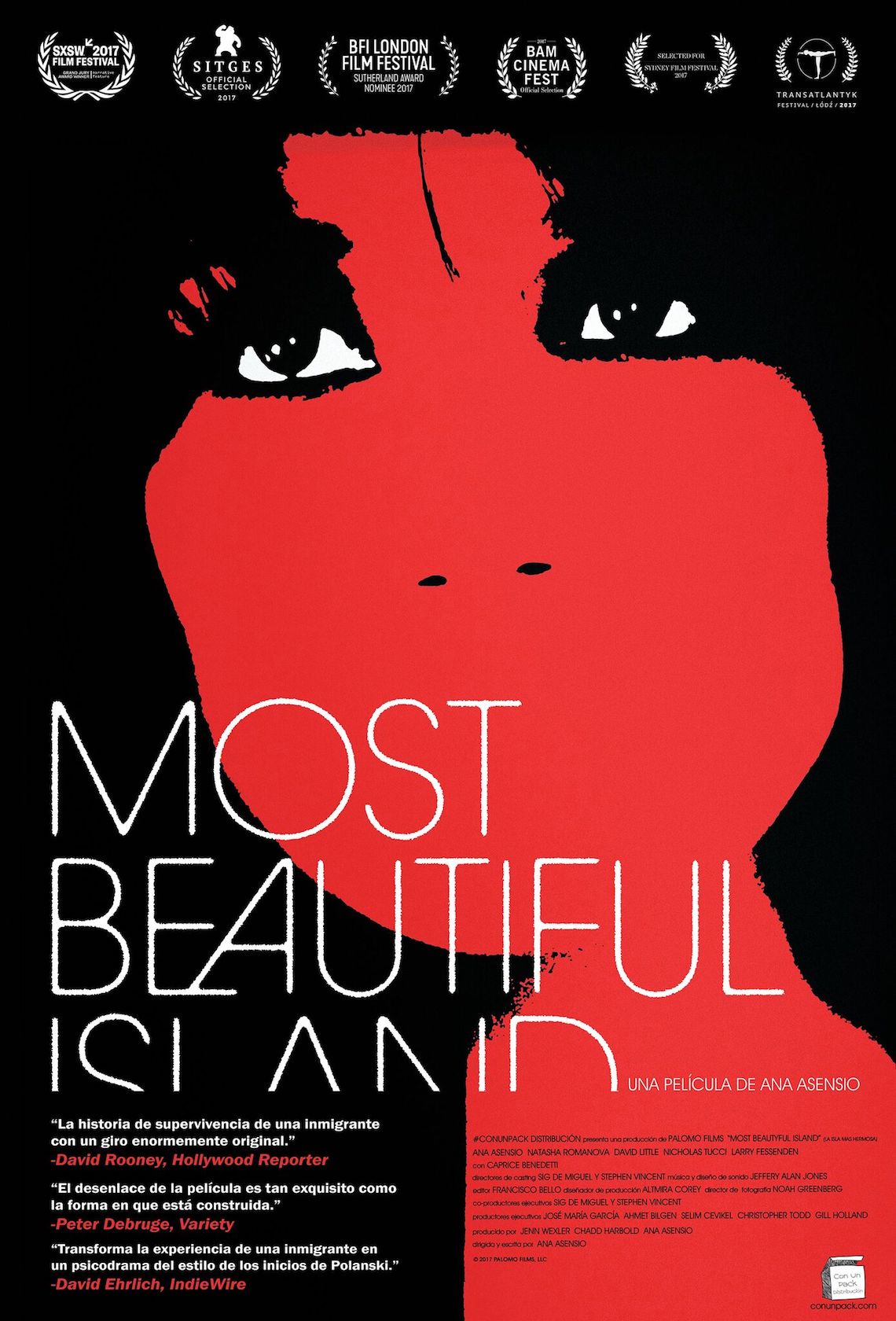
Kristina Zorita interviews the Spanish actress and director Ana Asensio as her debut feature is released in Spanish theatres
Leaving a promising career as an actress, the Spanish Ana Asensio went to New York looking for adventure fifteen years ago. After a couple of rough years, she settled down in the Big Apple. Last year, she wrote, directed, produced and led a story about an illegal immigrant with a twist of terror. “Most Beautiful Island” won the Best Picture award in South by Southwest Festival in Austin (Texas). It is also a contender for the Independent Spirit John Cassavetes Award.
In the beginning of the film you can read “inspired by true events”? At what extent?
There was a time when I was that character of Luciana. I was waiting for my work permit and my savings had gone. I couldn’t officially work. So I did those small jobs we see on screen: I did jobs such as leafleting in a costume, babysitting, giving Spanish lessons … Anything to make ends meet.
And that darker final part of the movie is also true?
That is inspired by something that happened to me. A woman offered me a job with no explanation. She just said you have to be in a costume. But it ended being an illegal place where I felt afraid. When I arrived they told me that I could not go anywhere. I wasn’t physically assaulted; I did not suffer any trauma. But I was afraid because I thought that in case it went wrong, I had not told anybody and I didn’t have a mobile phone to call anyone.
That last disturbing part is also metaphorical, what did you want to say?
Yes, that feeling of inequality, as if we weren’t the same species. That privileged class ready to pay for your life and those who are not even class because they are not registered in the country. It is a situation that generates tension and anguish in the film, but it’s not only that. There is a bigger, social burden. That was the root of my story. I wouldn’t have done those kinds of jobs if I had not been in a situation of vulnerability.
Why did you decide to direct?
One of the main reasons is to have more control over my career. As an actress, I did not have any. I was waiting for projects to come or castings where I could be chosen. This is a way of making my own work. Something I felt passionate about.

How has it been to wear so many different hats at the same time, as an actress, producer, writer and director?
From the start, I wanted to lead. Because I wanted to create a role suitable for me and where I could prove what I am capable of. As a writer, I was new but I did not feel any pressure because nobody was waiting for my script. I decided to direct it because it was a very personal story. I have to confess that it was difficult because I did not have any experience. I had clear ideas but I was too short in explaining them to the crew. And I became a producer because nobody wanted to produce it. So I had to find private investors.
That’s why you film in a so-called “guerrilla style”, paying low salaries?
The minimum the law allows for ultra low budgets: 100 dollars per day each. The most interesting is that everybody earned the same: from the head of department to the assistant and the actors. I suggested this from the beginning. That created a sense of community. They got involved because they loved the story, they have the chance to work in a film or in a position they haven’t tried before. For instance, the production designer used to work in the art department.
That low budget brought in a nomination for the John Cassavates Award in the Spirits. How did you receive it after all the troubles making it?
To be honest, the film cost us tears and sweat. But when good news arrived, they arrived one after the other. So I can hardly believe it. I think it is a miracle. My hope was that the movie would make a good impression and that it would be selected in one or two festivals. But the impact still surprises me.
And how did you receive the prize in SXSW?
It’s an incredible validation. Right now, they might look at my new script differently. Before, they would not open the door. Now it is as they say “we don’t understand your script, but you have a peculiar vision that worked before”. Yes, you feel welcomed.
What are you references as a director?
I love Andrea Arnold’s cinema. I love her realistic and naturalistic style with that touch of mystery in her stories. I do love the Dardennes brothers’ cinema, that hyper realistic cinema. They are my major reference. And I like the 1960s Polanski. If I have to mention an American filmmaker, I am very fond of John Cassavetes’ philosophy: I am an actor, my wife is an actress and let’s make cinema, let’s improvise, since there is a lot of improvisation in my film too.
Are you going to keep directing?
It has been an interesting discovery. If they call me for a role as an actress, I will take it. But I cannot stand waiting. So I keep writing and creating by myself.
